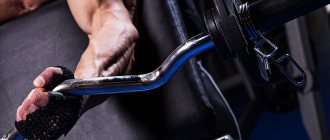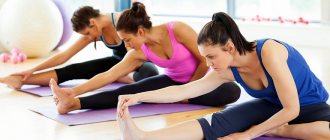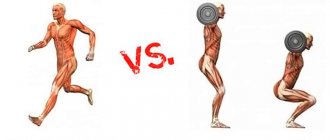One of the key conditions for achieving results in fitness and other sports is recovery. It involves returning your physical condition to normal and adapting to upcoming stress to improve your fitness. Lack of balance between intense training and rest negatively affects athletic performance. Over the long term, this can lead to a plateau or reverse effect, poor health, muscle pain, and decreased productivity. To avoid loss of strength and not worsen athletic performance, you need to recover effectively after exercise. We will tell you in this article how to do this quickly and correctly to increase the functionality of the body.
How much sleep does an athlete need?
High-level athletes must always be motivated to achieve their sporting goals. To do this, you can sleep after training during the day, then your mood will be improved and you will not feel the terrible irritability that occurs due to lack of sleep. Therefore, if you are tired, if possible, try to fall asleep and regain your strength.
It is recommended to sleep 7–9 hours, during which time your mental and physical state will have time to recover.
Research methods
The scientists included in the analysis works that met four criteria:
- They described in detail the training and subsequent recovery methods.
- Only one recovery method was analyzed in this work. Articles that examined, for example, massage in combination with active rehabilitation techniques or ice were excluded from the study because they did not evaluate the effectiveness of each separately. However, the analysis included work on the effectiveness of the combined action of massage and stretching.
- The work contains at least one valid test to assess soreness, fatigue, degree of inflammation and muscle damage.
- The study involved healthy adults over 18 and under 65 years of age.
The Importance of Sleep in Bodybuilding
The quality of your sleep is just as important, if not more so, than the length of your sleep. There are several stages of sleep.
- Stage 1 highlights the beginning of the sleep cycle, when the person is still aware of any changes in the environment.
- The start of the actual sleep cycle occurs in stage 2, which lasts between 10 and 20 minutes.
- The deepest stages of sleep occur around 30–40 minutes into stages 3 and 4, followed by a period of active sleep.
Stages 3 and 4 are integral to an athlete's development as they release growth hormone and regulate cortisol. This is why sleep is so important for a bodybuilder. Growth hormone is an important part of the body's endocrine system. It is essential for muscle recovery, muscle building, bone growth and promoting fat oxidation. This is important to maintain a certain level of performance throughout your athletic career.
System overload and symptoms
First of all, do not forget that feeling unwell is just a symptom, which means an overload of certain systems in the body. Such overload can easily be treated symptomatically, but does not eliminate the root cause of the condition. For an athlete, this is a clear sign: it is necessary to change the training process, nutrition, or give the body more time to rest.
| System | Symptom | Cupping |
| Overload of the cardiovascular system | Chest pain, headaches, nausea, weakness, drop in blood pressure. | Reduce caffeine consumption. Reducing the intensity of the training process. Use of sedatives. |
| Overload of the gastrointestinal system | Nausea, vomiting, indigestion, or diarrhea. Immunity to certain nutrients. | Taking digestive enzymes. Rest until complete recovery. Chamomile tea. |
| Overload of the central nervous system | Insomnia, nervousness, mood swings, headache, muscle tremors. | Sedatives and vitamins based on magnesium and vitamin B6. |
| Hormonal overload | Weakness, poor health, fever, sudden drop in mood. | Complete rest from stress, it is possible to take testosterone stimulants such as tribulus or zinc. |
| Traumatic overload | Pain in muscles, ligaments, joints. | Complete rest, massage, restorative warm-up. |
Why do you want to sleep after playing sports?
During and after physical activity, the hormone cortisol increases, which not only causes catabolism, but also loss of strength. Therefore, after high-intensity exercise you want to sleep. Cortisol, also known as the stress hormone, is regulated in deep sleep. Cortisol levels directly affect the body's ability to metabolize glucose. Despite all the observed benefits of a full night of sleep, many athletes struggle to maintain that uninterrupted 7-9 hours due to strict scheduling of their daily routine, sleep, and training.
When you exercise, you burn calories and expend energy. Depending on the duration and intensity of your workout, you are putting stress on your body, which requires rehydration, nutrients, and rest.
How to avoid insomnia
It is best to adjust your daily routine in such a way that you exercise no later than 6 hours before going to bed. The habit of falling asleep at the same time also plays a big role. Many people fall asleep well even after vigorous exercise. It's all about their habit of living according to the same daily routine.
Breathing exercises after exercise
To transition into a state of relaxation, it is recommended to perform breathing exercises before bed. It's done like this. Sit on the carpet, straighten your back (you can do the exercise in a standing position, but your back should be straight). Try to get all thoughts out of your head and relax physically and mentally. After 3-5 minutes, begin to inhale air for 4 counts and exhale for 6. (Or inhale for 6 - exhale for 8). It is important that the exhalation is longer than the inhalation. Release air from the abdominal area first, then from the chest. After a while, change the order - first exhale through your chest. Gradually lengthen your inhalation.
Bedroom temperature
The room should not be too cold or hot. The optimal temperature for sleeping is 18-22 degrees. Before going to bed, you need to ventilate the bedroom.
Cool shower
Water treatments will help regulate body temperature. It is best to take a shower after training, and cooler than usual. You can wipe your body with a towel soaked in cold water. When training in nature near open water in the summer, it is useful to complete your training with swimming or at least plunge into the water several times.
Stress
A sharp increase in training load is stressful for the body. In order for the body to adapt, the intensity should be increased gradually. But it’s not the workout itself that can cause insomnia, but obsessive thoughts or strong emotions. Negative thoughts most often interfere with sleep, but even neutral or positive events can cause stress. The rhythm of life in a modern city contributes to the accumulation of stress. Meditation, positive thinking, reasonable planning, and the ability to leave things outside the office help to avoid this. If you come to the gym, tomorrow’s work planning meeting has nothing to do here.
Adaptation of the body
There is no need to panic about insomnia due to exercise. Most often, after 1-3 sessions, the body gets used to new loads. This happens when you just started playing sports or resumed training after a break. If adaptation does not occur, then it may be necessary to temporarily reduce the level of intensity of the load. It is better to get comfortable at a simpler level, and then smoothly move towards new achievements.
What to do if there is no time to sleep after training during the day?
- Eating before and after exercise will help you maintain energy and not get too tired after exercise, reducing cortisol levels. Be sure to eat nutritious foods both before and after your workout to fuel your body and replace lost calories, vitamins, and minerals. If you plan to exercise for less than an hour, eat carbohydrates that will provide a quick burst of energy and a spike in glucose, such as a bagel or toast. If you exercise for more than an hour, choose a carbohydrate source that takes longer to digest - cereals, grains, fruits.
- When you exercise, you sweat. Sweat is mostly water, and you need to replenish that water after your workout. If you don't, you risk dehydration, which can make you feel tired, drowsy, and even dizzy. Three hours before your workout, start drinking water. During these three hours, drink approximately 3 glasses of water. Drink plenty during and after exercise.
- Get more sleep at night. If you don't get enough sleep, you're overtaxing your body, which can make you feel even more tired after your workout. On average, 8 hours of sleep is enough for your muscles to rest and recover.
Cardio and health
People often complain that they feel sick after a running workout. What is this connected with? First of all, because the body was not adapted to such a load. Even if you have well-developed legs, do not forget that cardio load primarily overloads the cardiovascular system, which cannot return to normal and continues to work intensively after running.
In addition, there is a whole range of symptoms that cause poor health after cardio training, even in experienced athletes:
- Dehydration. When you run, you lose a lot of minerals and fluids. Since you don't drink enough fluid while running, the natural result is dehydration. This is a common reason for feeling unwell after a cardio workout.
- Toxic breakdown of adipose tissue. Since cardio is often performed in the fat-burning zone, it is important to remember that the completed forms of the triglyceride molecule break down, releasing alkaloids that poison the liver and body. If the body is not sufficiently prepared for such stress, cardio simply causes fat poisoning, which goes away on its own within a few hours after the end of the workout.
- Drop in blood sugar levels. During the load process, the body first uses all easily broken down energy - primarily glucose, which circulates throughout the body. If the intensity of cardio training does not allow the breakdown of new glycogen in time or it runs out, this leads to a sharp drop in blood sugar levels with consequences in the form of hypoglycemia.
- Hypoxia of all tissues. A characteristic feature of high-intensity cardio training is precisely the lack of oxygen. They are trying to stop this problem with hypoxic masks and other tricks, but the fact remains a fact. While running, the body simply does not have enough oxygen to function normally.
© Syda_Productions — depositphotos.com









